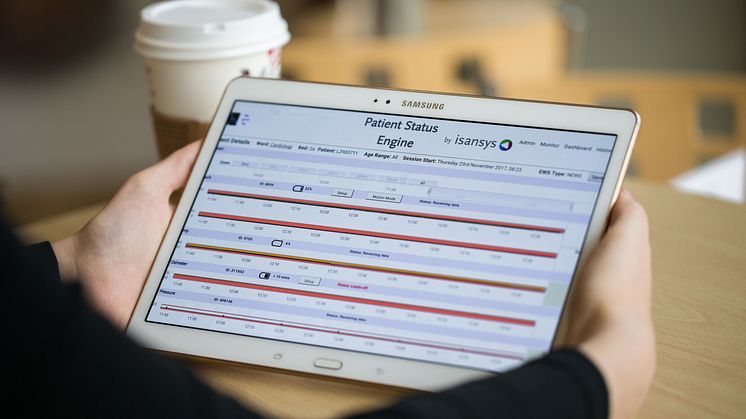
News -
Isansys Lifecare named as one of the top companies in the UK which could help save the NHS millions
An independent review highlights how the NHS and other public sector organisations have saved £30 million and achieved wider economic and social benefits, through just 8 SBRI Healthcare projects.
Commissioned by the NHS, the PA Consulting report - called ‘SBRI Healthcare: a review of the benefits of the Small Business Research Initiative in healthcare’ - says how the projects delivered a £30 million saving by July 2017, with recurring annual savings running at £19 million.
These projects also attracted £122 million in private investment, delivered £6.4 million in export sales and created 285 jobs.
Successful projects delivered wide benefits
The 8 high-impact projects that helped to deliver the saving include:
- Isansys Lifecare, which supports automated patient observations and alerts through wearable sensors to support better care management and treatment
- My mHealth, whose self-management telehealth system helps patients with lung diseases
- 365 Response, which has developed an online marketplace for non-emergency patient transport
They were also found to offer wider benefits, including time-savings for clinicians, a fall in non-attendance by patients, better patient outcomes, better access to services and reduced waiting times.
Future economic impact
As part of the report, PA Consulting looked at a further 14 projects to assess future economic impact.
Looking at their potential, it estimates savings to the NHS could rise to between £350 to £480 million in 2022, and £1.2 to £1.8 billion in 2027.
The report is a snapshot of the potential benefits. In total, SBRI Healthcare funded 176 projects to a value of £73 million from 2013 to July 2017.
The SBRI programme works by bringing together government challenges and ideas from industry. Businesses can win contracts to develop solutions for the specific challenges faced by public sector organisations.
Innovation is key to a successful NHS
Karen Livingstone, National Director of SBRI Healthcare, said:
SBRI Healthcare is helping to ensure the NHS embraces innovation that benefits patients, saves the NHS money and keeps the service in the vanguard of medical science and development.
At a time of budgetary constraint, new thinking and innovative technology should not be seen as a threat to the NHS’s stability, but rather as a key stepping stone towards a successful future.
The report adds the NHS could gain further benefits from SBRI, including improving the pace of adoption of successful projects, a stronger commitment to buying these innovations and maintaining a broad scope for potential future contracts.


